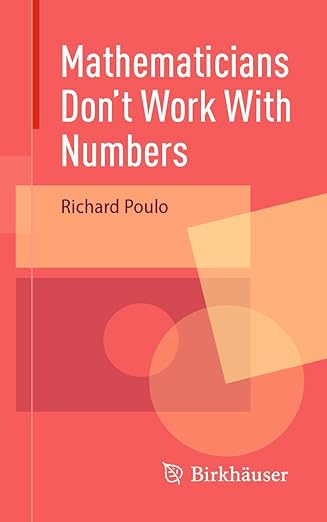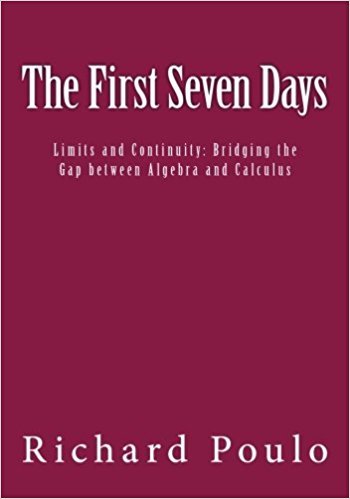
Mathematicians Don't Work With Numbers
Now available on
Springer Link.
This is an updated, expanded and better named version of Mathematical Vignettes.
Mathematicians don’t work with numbers. (English)
Zbl 1553.00001
The book "Mathematicians don't work with numbers" is an agile and engaging introduction
to different branches of mathematics, from public key encryption to chaotic models,
from proof techniques to aesthetics in mathematics. It starts from the point of view of a ...
(read entire review)
Reviewer: Maria Mannone (Palermo)
